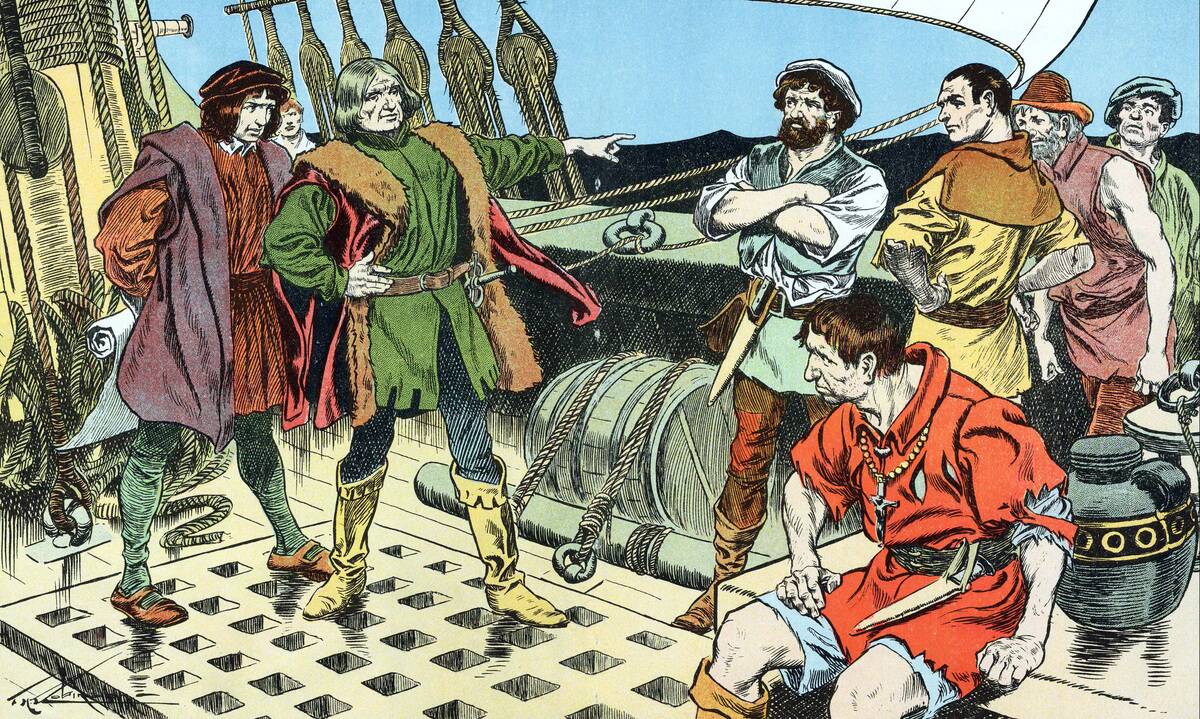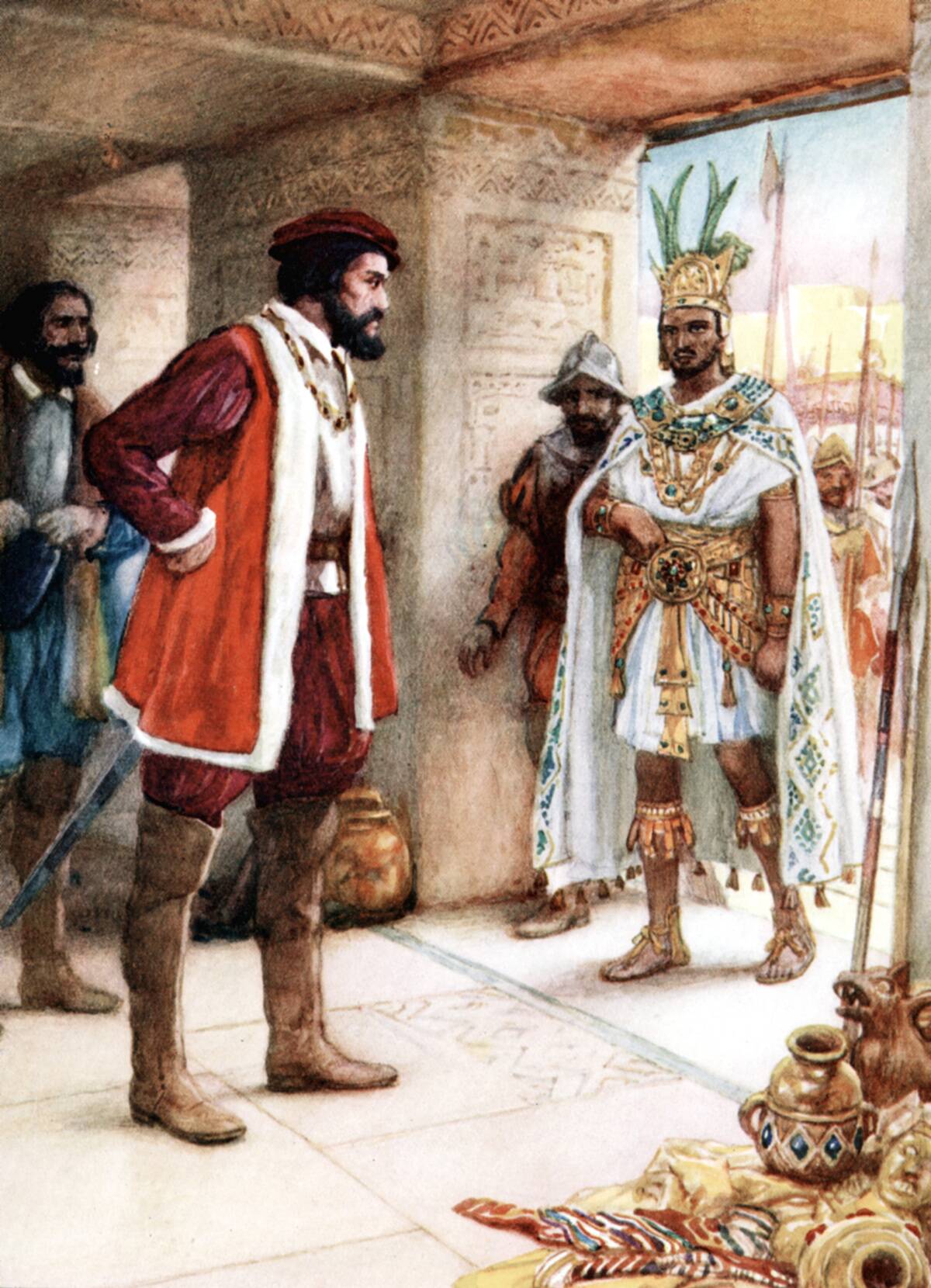Would you have had what it took to be an explorer of the New World
Imagine setting sail toward the horizon, the promise of new lands just beyond the edge of the world. The allure of the New World was tantalizing to explorers of the past, offering a canvas of endless possibilities and untold riches.
The Age of Exploration, which began in the late 15th century, was fueled by the desire to discover new trade routes, spread religion, and expand empires. These journeys were not only about conquest but also about the sheer thrill of venturing into the unknown.
The Call to Adventure: Do You Hear It?

The call to adventure is a powerful force that has driven explorers throughout history to leave the safety of the known. This call was no different for the likes of Christopher Columbus and Ferdinand Magellan, whose curiosity outweighed the fear of the vast and uncharted oceans.
Their journeys were propelled by the tantalizing prospect of fame and fortune, but also by a deeper, more primal urge to explore and understand the world in ways no one else had before.
Brave or Reckless? The Mindset of a New World Explorer

Venturing into the unknown required a mindset that balanced bravery with a bit of recklessness. Explorers like Vasco da Gama had to possess the courage to face the dangers of the sea, from unpredictable weather to the threat of piracy.
This daring approach was often seen as madness by many, but without such boldness, the maps of the world would still have blank spaces. The line between bravery and recklessness was thin, but essential for the discoveries that shaped the world.
Sea Legs and Salt Air: Life Aboard the Ship

Life aboard a ship during the Age of Exploration was anything but luxurious. Sailors had to adapt to cramped quarters, limited supplies, and the ever-present scent of salt air.
Ships like the Santa Maria were small and crowded, with the constant challenge of maintaining shipboard life in often harsh conditions. Despite the hardships, the camaraderie among sailors and the shared goal of reaching new lands created a unique bond that helped them persevere through the toughest of times.
Navigating the Unknown: A Test of Skill and Courage

Navigating the open seas without modern technology was a formidable challenge. Explorers relied on celestial navigation, using the stars to guide their paths, a skill that required precision and bravery.
The navigators were akin to magicians, making sense of the ocean’s vastness. Instruments like the astrolabe and cross-staff were essential tools, but ultimately, it was the explorer’s courage and expertise that made the difference between success and failure in these perilous journeys.
The Role of Curiosity: Is Your Inner Adventurer Ready?

Curiosity was the fuel that ignited the fires of exploration. It was the insatiable desire to see what lay beyond the horizon that propelled explorers into the unknown.
This spirit of inquiry was not just about finding new lands, but also about understanding the unique opportunities our world offers. The inner adventurer in each of us can relate to this thirst for discovery, a trait that continues to drive human innovation and exploration to this day.
Facing the Elements: Weathering the High Seas

The high seas were a formidable adversary for any explorer. Storms could arise without warning, and the force of nature was both awe-inspiring and terrifying.
Sailors had to be prepared to face towering waves and fierce winds, with only their knowledge and instincts as their guide. The ability to read the weather and react swiftly was crucial for survival, and the resilience shown by these explorers in the face of nature’s fury remains a testament to their enduring spirit.
The Trials of Leadership: Could You Lead a Crew?

Leadership on the high seas demanded a unique blend of authority and empathy. Captains like Sir Francis Drake had to maintain order and morale among their crews, often under the most trying circumstances. Leading a crew required not only strategic thinking but also the ability to inspire and motivate.
The trust between a captain and their crew was paramount; without it, the journey could quickly descend into chaos. Successful leaders were those who earned the respect and loyalty of their men.
Charting New Territories: The Art of Mapmaking

Mapmaking was an indispensable skill for explorers, turning the unknown into something navigable. Early maps were often a mix of artistry and science, with cartographers like Gerardus Mercator creating projections that revolutionized navigation.
These maps were more than just tools; they were records of discovery and ambition. The ability to chart new territories and document them accurately was critical, providing future explorers with the knowledge needed to follow in their pioneering footsteps.
Culture Shock: Encounters with Indigenous Peoples

Encounters between explorers and indigenous peoples were moments of profound cultural exchange, often marked by misunderstandings and mutual curiosity. These interactions were sometimes peaceful, but could also lead to conflict, as seen with Hernán Cortés and the Aztecs.
Despite the challenges, these meetings were pivotal in shaping the world, bringing together diverse traditions and knowledge. The impact of these encounters is still felt today, as they laid the groundwork for the globalized society we live in.
The Quest for Riches: Gold, Glory, and the Pursuit of Wealth

The pursuit of wealth was a major driver of exploration, with tales of gold and riches luring many to the New World. Figures like Francisco Pizarro were drawn by the promise of treasure, leading to expeditions that would change the course of history.
While the quest for riches brought prosperity to some, it also had devastating effects on indigenous populations. This pursuit was a double-edged sword, fueling exploration but also leading to exploitation and conflict.
The Reality of Hardships: Disease, Starvation, and Resilience

Life on the frontier was fraught with dangers, not least of which were disease and starvation. Explorers faced harsh conditions with limited resources, often battling scurvy and malnutrition.
The resilience required to survive in such circumstances was immense, with many expeditions suffering great losses. Despite these hardships, the determination to continue exploring was unwavering, a testament to the human spirit’s ability to endure in the face of adversity.
Resourcefulness in the Wilderness: Survival Instincts
![[redacted] Guiding the Lewis And Clark Expedition by Alfred Russell](https://media.tellmebest.com/wp-content/uploads/2023/08/sacajawea-guiding-the-lewis-and-clark-expedition-by-alfred-russell-17252.jpeg)
Survival in unknown territories required ingenuity and adaptability. Explorers like Lewis and Clark relied on their resourcefulness to navigate unfamiliar landscapes, learning from indigenous peoples (particularly Sacagawea) and using the land’s resources to their advantage.
This blend of practical skills and survival instincts was crucial, allowing explorers to overcome the challenges posed by new environments. The ability to adapt and thrive in the wilderness remains an essential trait for adventurers even today.
The Power of Perseverance: Overcoming Setbacks

Setbacks were an inevitable part of exploration, but the power of perseverance enabled explorers to push through obstacles. Figures like Ernest Shackleton exemplified this spirit, leading their teams through seemingly insurmountable challenges.
The ability to adapt and keep moving forward, even when faced with failure, was a defining quality of successful explorers. This resilience not only helped them survive but also allowed them to achieve their goals against all odds.
A Taste for Discovery: The Joy of Finding the Unknown

The joy of discovery is a feeling that has driven explorers throughout history. The thrill of finding something new, whether it be a land, a species, or a culture, was a reward in itself.
This sense of wonder and excitement was captured by explorers like Marco Polo, whose accounts of the East opened the eyes of Europe to the wider world. The taste for discovery continues to inspire adventurers today, as the pursuit of the unknown remains an integral part of the human experience.
The Legacy of Exploration: Leaving Your Mark on History

The legacy of exploration is etched into the history books, with the names of explorers like Magellan and Cook remembered for their groundbreaking journeys. These expeditions not only expanded geographical knowledge but also left a lasting impact on global cultures and economies.
The stories of these explorers serve as a testament to human curiosity and determination, inspiring future generations to continue the quest for knowledge and discovery. Their marks on history remind us of the power of exploration to change the world.
Reflecting on the Journey: Would You Answer the Call?

As we reflect on the journeys of the past, we must ask ourselves whether we would have answered the call to adventure. The challenges faced by explorers were immense, but so were the rewards.
The spirit of exploration is alive within us all, urging us to seek out new experiences and broaden our horizons. Whether in our own lives or in the world of exploration, the call to adventure remains a powerful force, inviting us to step beyond our comfort zones and embrace the unknown.



